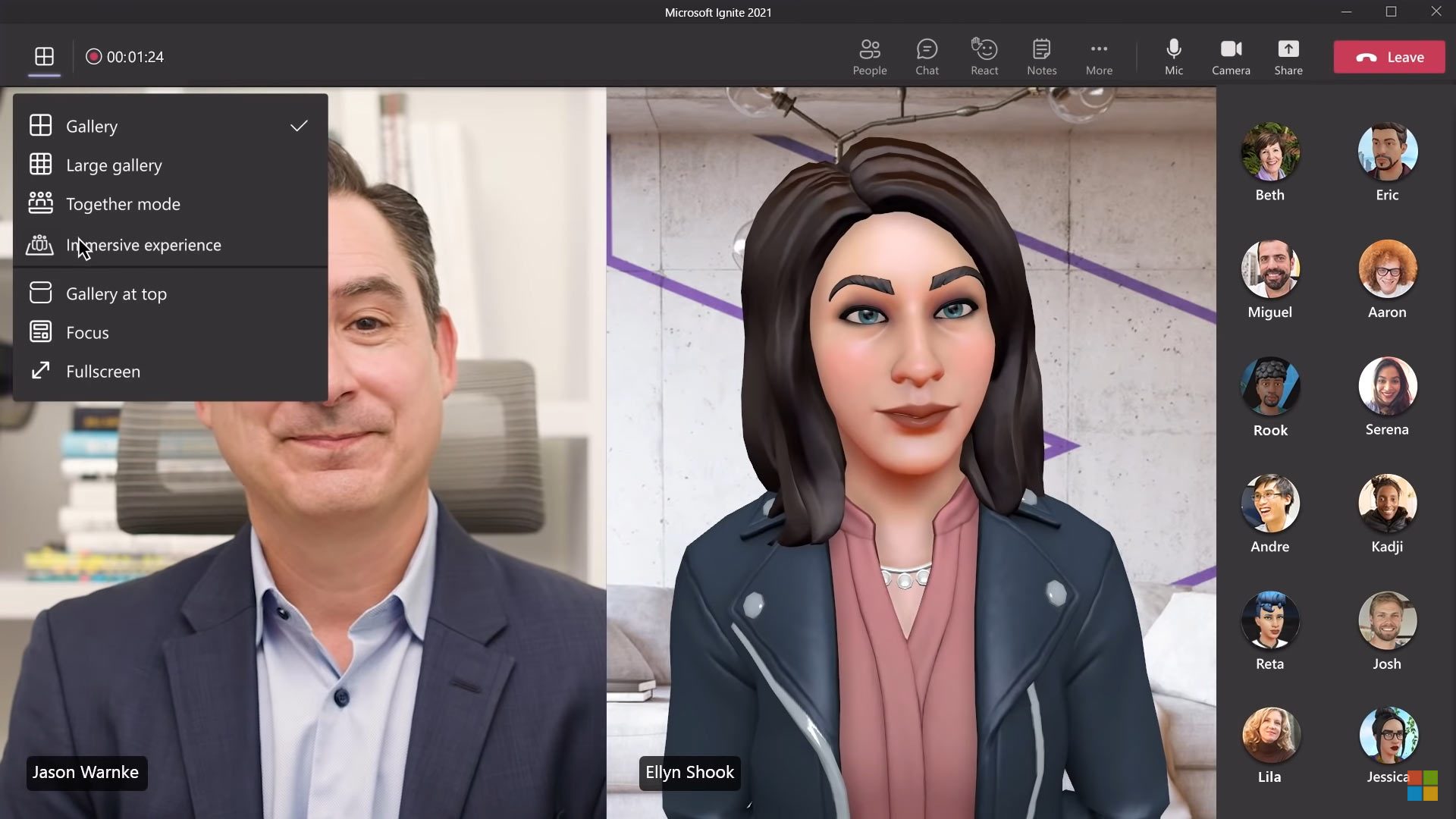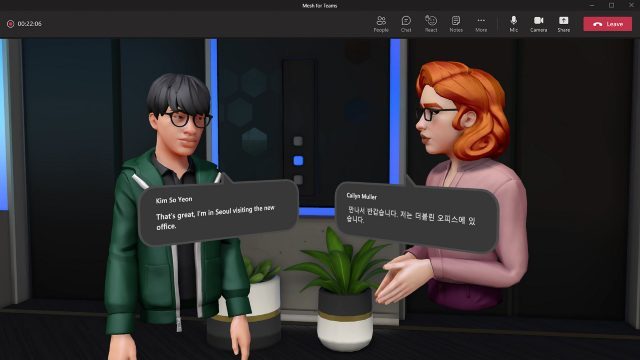Microsoft is making a strong bid to bolster its version of the metaverse as it looks to roll out 3D avatars and immersive meetings for its Microsoft Teams communication platform.
You might define the metaverse as essentially an immersive internet where virtual experiences are interoperable, and also offer a continuity of the user’s digital identity. It’s not a new idea, as fully-functional immersive social platforms have been around since even the early days of consumer VR, although the concept seems to be picking up traction now that the established names in tech are making more concrete efforts.
First announced back at Microsoft Ignite in March, Mesh allows developers to create multi-user XR applications built on Microsoft’s Azure cloud computing arm.
Now Microsoft is gearing up to offer competition to the rest of the known tech world with the announcement of Mesh for Microsoft Teams, which effectively brings those previous efforts to build cross-platform immersive spaces and 3D avatars natively to the Teams communication platform, replete with support across mobile, PC, Microsoft VR headsets, and HoloLens 2.
“The feature combines the mixed-reality capabilities of Microsoft Mesh, which allows people in different physical locations to join collaborative and shared holographic experiences, with the productivity tools of Microsoft Teams, where people can join virtual meetings, send chats, collaborate on shared documents and more,” the company says.
Coming sometime in 2022, Mesh for Microsoft Teams will offer a new ‘Immersive experience’ option which will allow Teams users to build a 3D avatar and either use it in place of a standard webcam, or selecting it as their avatar for AR or VR interactions. While Mesh for Teams is admittedly an XR-focused offering meant for live face-to-face collaboration, when used in place of a webcam (read: without an XR headset) the 3D avatar is animated to interpret vocal cues.


Mesh for Microsoft Teams will roll out with “pre-built immersive spaces to support a variety of contexts, from meetings to social mixers,” the company says. At some point, organizations will also be able build bespoke immersive spaces so colleagues can interact.
Microsoft Teams’ large enterprise usership and interoperability with its cloud infrastructure, video conferencing, and family of Microsoft 365 products automatically positions it as a strong competitor for would-be metaverse users.
Undoubtedly the company’s biggest competition is Meta (formerly Facebook), which announced last week that it was bolstering efforts to shift its business toward building its version of the metaverse, something that saw a complete rebrand of the company.
Meta launched its own work-focused immersive space back in summer. Called Horizon Workrooms the virtual collaboration platform connects both VR and video chat users in the same place, the latter of which includes support for both Zoom and Facebook video chat.


